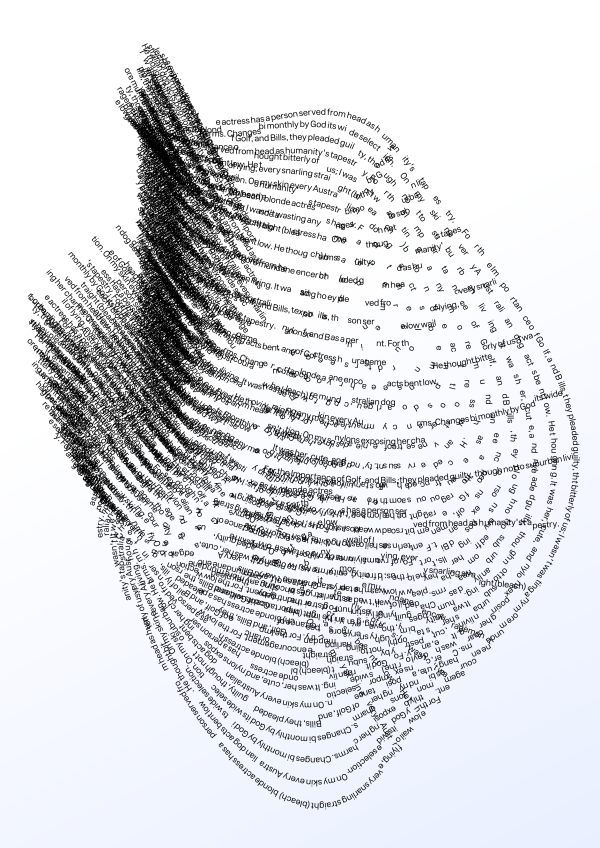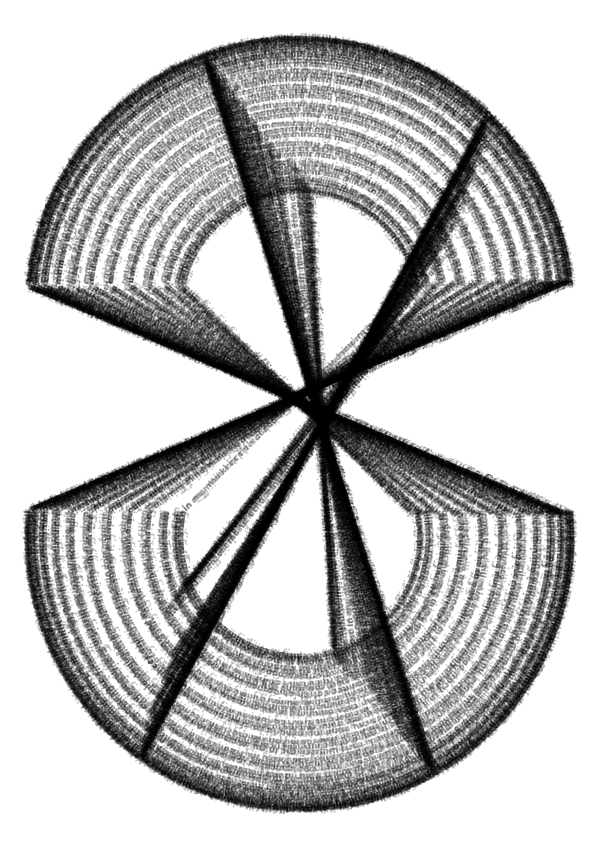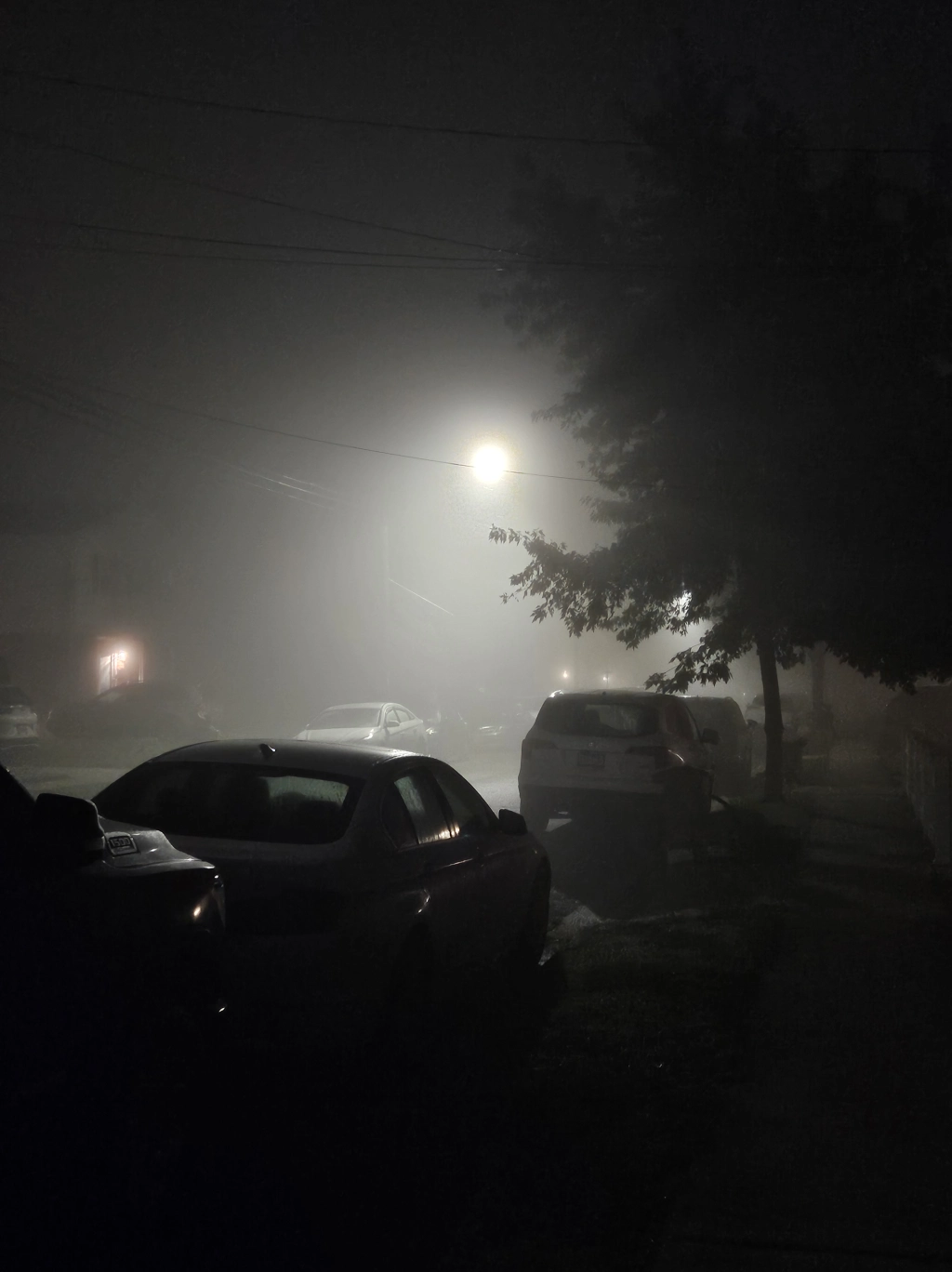pork and sweet breads
mundane encouragement
The Milky Way
in my mind keep this command in my mind
The process between me and the computer is no different than any other “glitch” art. Except the roles are switched. The computer makes something, and I tweak it and twist it and mishandle it, and it comes back a lovely piece of art.
I have a text generator, and I have a ‘form’ generator. Once I am happy with both outputs through my glitching, I then apply text to form. Could I make them one program? Yes. Do I want to? No. The longer I do this the more I involve myself, and more automation means less of me fiddling with things.* Once it is complete, the computer picks a title from the text in the poem. The more I do this, the more I do some of the tasks I had previously delegated to the computer. Five years ago, I was barely changing anything. Now I double-check each word, rewrite many sentences, go over each node of the form. I now also select the typefaces used, which is something else the computer used to do (that had become necessary, as I’ve collected so many dingbat fonts).
Part of the danger of taking back more of the “action” of the creation is that I worry about writing to an audience. Am I creating pieces because I see they are more popular or are of a style more selected for publication? I like to think no, but I could be sure the answer was YES when the computer nearly did it all.
_______________________________________
*I am always fiddling with something in this set-up. If the computer’s output is unchanged, I still have to tinker with the code behind it all. If I rewrite, edit, redraw, and so forth, then I work less on the code. I hate programming, which is good, because I am quite possibly the worst programmer on the planet. Despite getting a master’s degree at RPI [Rensselaer Polytechnic Institute].

S Cearley is a former AI researcher who has tricked a computer into making poetry when it thinks it is making art. Find him on Instagram @generatedpoetry and Mastodon at@scearley@cybre.space. Minitel: futureanachronism.com.








